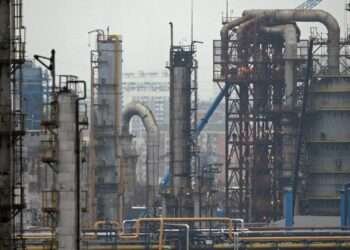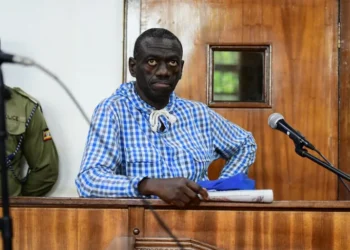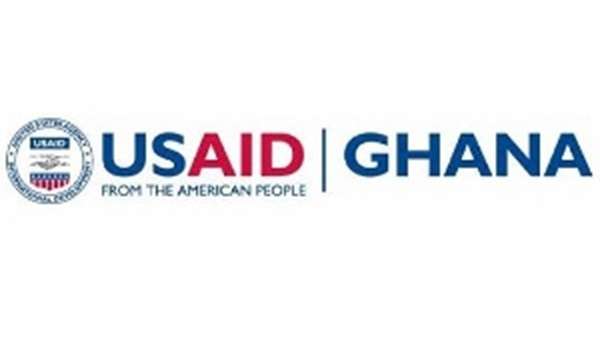Dr Mohamed Anouar Jamali, Chief Executive Officer of OCP Africa, has suggested that soil health investments are central to Africa’s food system transformation bid.
According to the OCP Africa CEO, the year 2022 was set for recovery after a Covid pandemic season that adversely affected economies, including limiting farmers’ access to critical input and output supply chains. As such, he noted that the world has prioritized local agricultural value chains development to secure food sovereignty.
“This in turn caused an increase of fertilizer demand. However, as the world adjusted to these new circumstances, a war erupted in Eastern Europe disrupting the global fertilizer trade.
“In Africa, the conflict drove a 30% increase in fertilizer prices, with the World Bank reporting that fertilizer raw materials were 60% to 70% higher in 2022 than the previous year, which only amplifies an already existing structural challenge of fertilizer affordability to farmers.”
Dr Mohamed Anouar Jamali
Meanwhile, Dr Jamali indicated that a 60% rise in energy prices shocked the global food and energy markets in 2022, contributing to a cost-of-living crisis that pushed more Africans into poverty.
According to the World Bank, Sub-Saharan Africa’s economic growth decelerated to 3.3% in 2022 from 4.1% in 2021, on account of the tightening global financial situation and rising inflation.
“It is against this backdrop that we at OCP Africa, a subsidiary of the OCP Group, a global leader in plant nutrition and the world’s largest producer of phosphate–based fertilizers, derived a relief program to alleviate the situation, particularly for Africa’s smallholder farmers. Throughout 2022, we provided 550,000 tons of phosphate-based fertilizer to farmers in Africa, a third of which were donations, and the rest offered at discounted prices.”
Dr Mohamed Anouar Jamali
OCP’s Farmer-Centric Strategy
Dr. Jamali noted that the contribution represented approximately 16% of the continent’s phosphate fertilizer needs, and was in line with OCP’s farmer-centric strategy that seeks to support, alongside institutional, public, and private partners, the transformation of food security and the increased incomes of Africa’s millions of smallholder farmers.
“In 2023, we are taking a step further by reserving 4 million tons of phosphate (P) fertilizers for African farmers, more than double OCP’s supply to the continent in 2021. This represents over a quarter of the company’s expected total capacity for 2023. This allocation is far greater than the projected continentwide fertilizer deficit and is estimated to boost the yields for more than 40 million farmers across 40 countries.
“We are especially keen on ensuring the supply of P fertilizers, following research showing that 99.7% of Africa’s soils are deficient of phosphorous, and that the continent’s application of P fertilizers needs to increase by 8-12 times to achieve self-sufficiency in maize production by 2050.”
Dr Mohamed Anouar Jamali
Preparation for Increasing P Fertilizer Demand
The CEO averred that in preparation for increasing P fertilizer demand, at OCP, they invested tremendously in the development of eco-responsible fertilizer production facilities, reaching 15 MT of finished phosphate-based products at 2023, from a base of 3MT in 2008.
“Yet ours is not just a blanket push for fertilizer use. Across Africa, we are working with partners to strengthen the capacity of labs and develop programs for soil sampling and testing, ensuring that the formulations we deliver to farmers are crop and soil specific.
“We have so far mapped more than 50 million hectares of land across different African countries, conducted over 5,000 trials on major crops of maize, rice, cocoa, potato, soybean, groundnut, oil palm, sugarcane, cotton, and vegetables, and customized 44 specific fertilizer formulas.”
Dr Mohamed Anouar Jamali
Dr Jamali asserted that their approach responds to the fact that the fertilizer formulas used in many African countries are recommended based on outdated soil data, and many do not meet farmers’ current requirements.
“Realizing that soil needs radical change in line with different ecological changes, we are keen to promote smart and environmentally responsible fertilization, moving away from generic formulas.”
Dr Mohamed Anouar Jamali
The CEO of OCP Africa noted that if technology is global, innovation is local, Africa cannot be satisfied with imported models and must lead the way in achieving its green agricultural revolution, setting an example for sustainable nutrition through customization. This, he said, has driven their bid to invest in innovation & research over the past 10 years.
READ ALSO: Akufo-Addo Ousted Charlotte Osei And 2 Deputies Only To Be Replaced With Pro-NPP People – Mahama





















